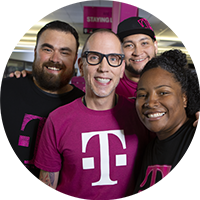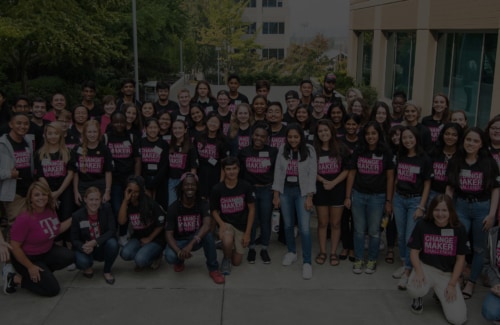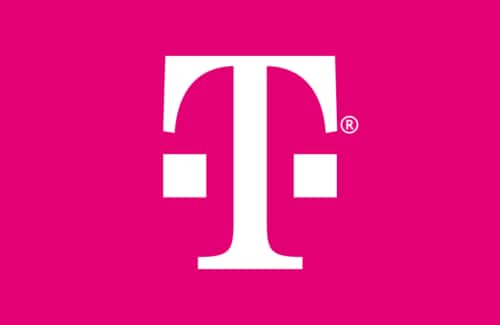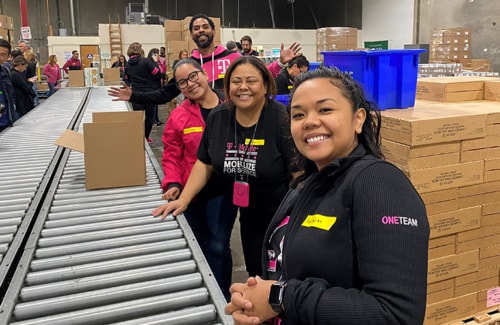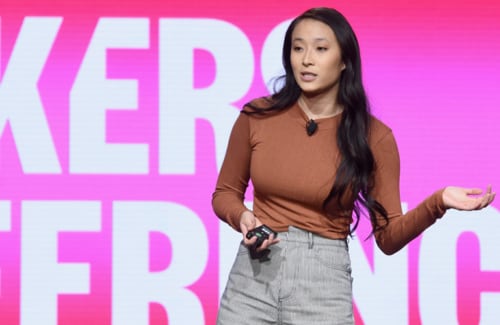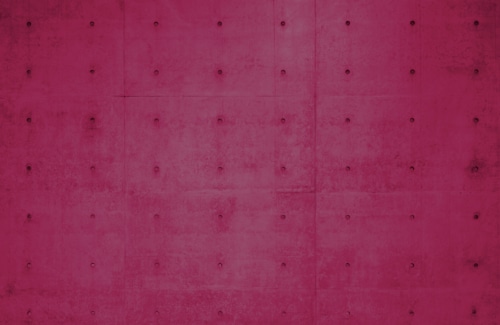Last May, T-Mobile launched its inaugural Changemaker Challenge in partnership with Ashoka, a call to teen and young-adult innovators to bring big ideas, that will create positive change in their communities, to the table. The leader of one of the six winning teams and a CEO favorite, J.I. of Dios del Sol, shares his journey so far – and how he plans to revolutionize and democratize solar power across Puerto Rico to prepare it for the future.
As a child growing up in Puerto Rico, J.I. became obsessed with hurricanes – an all-too common weather occurrence on his tropical island. After the devastation caused by Hurricane Maria in 2017, J.I. looked directly into the eye of the storm to fuel his passion: overhauling the island’s old centralized model of energy distribution, and creating a grassroots effort to bring power to the people. By the spring, J.I. kicked his vision into high gear, beginning work on his project Dios del Sol (God of the Sun) and mapping out a plan for using churches and other faith-based organizations to spread his self-described ‘gospel of solar’. He wanted to eventually create a microgrid of weather-proofed power to prepare for future storms that will hit the island. Enter T-Mobile’s Changemaker Challenge – and $10,000 toward making his dreams a reality. Here, J.I., now 22, discusses his journey from a boy with a tempestuous fascination to a storm-charging entrepreneur, and how winning T-Mobile’s Changemaker Challenge and attending the Changemaker Lab, a two-day intensive experience at the company’s headquarters in Bellevue, Wash., has prepared him to take his vision of supporting the people of Puerto Rico to the next level.
Q. You are a self-described “hurricane obsessive.” How did that begin, and when?
A. I was born and raised in the tropical paradise of Puerto Rico. I had a fascination for the natural world; astronomy, meteorology, ecology – especially tropical meteorology and hurricanes.
I was about 2 1/2 years old when Hurricane George hit in 1998. I know it was a scary moment for me and my family. I had an asthma attack during the storm and my mother had to go out in the brunt of the hurricane to find electricity so she could give me my asthma therapy. It’s a story that my family tells to explain my obsession.
Q. What are some of your first memories of this obsession?
A. I was seven the first time I saw images of Hurricane Isabel as it was making landfall. I’d only seen this kind of force of nature in movies, so seeing it firsthand changed me for life. After that, I followed every hurricane like a hawk. I was like a little weather man!
When Hurricane Katrina hit in 2005, I truly realized that more than just being fascinating, hurricanes can cause serious harm. Hurricane Katrina had quickly and unprecedentedly strengthened into one of the most powerful storms ever. I felt helpless but knew I needed to do something, so I called my grandmother and got a group of people together to meet at the church to pray for the people in Louisiana. I was sobbing, because I suddenly had a very powerful realization that a lot of people were going to die. I was 8.
Q. When did this passion turn into a possible business plan?
A. In the summer of 2017, I left for college in Washington, D.C. I was bored, so I signed up for the Bored and Brilliant Challenge – a mindfulness challenge from a podcaster on NPR to stop using my phone so much and use time to actually think about stuff. I started thinking about the Puerto Rican debt crisis, which was hitting the public utility company hardest, and I realized that Puerto Rico needs to modernize its energy grid. Then I thought, what do you get if you blur the lines between a community organization and a business, what organizations are most capable to quickly deploy and spread the gospel of solar? Which led me to churches. In Puerto Rico, churches are an integral part of the community that can serve as a center for bringing people together around ideas. I know how much power these institutions hold in the community and how much opportunity there is for them to also create power by taking the lead in solar. So, essentially, participating in the Bored and Brilliant Challenge podcast led to the idea for Dios del Sol. Then Hurricane Maria hit, and changed everything.
Q. Did Hurricane Maria create an even greater sense of urgency for getting Dios del Sol off the ground?
A. Absolutely. Suddenly, I was witnessing the horror I had seen with Katrina 12 years earlier, only it was happening to my community. Maria decimated our island. It was in a complete blackout, and for many, loss of power meant loss of life. I was still in Washington, D.C. for college but decided I needed to get home to help in any way I could.
I returned to focus on what I now knew was the most important system we needed to fix – energy. Hurricane Maria demonstrated we did not have the energy resilience we needed to respond like a first world nation to a storm that we should be very used to dealing with. I knew this would continue to happen if we didn’t work to fix our relationship with energy.
Q. Is this when you entered the T-Mobile Changemaker Challenge?
A. Once home, I saw that somebody posted a link to the T-Mobile Changemaker Challenge on a Facebook group I was in – so I went for it! Participating in the Changemaker Challenge gave me the confidence I needed to understand I had an idea worth fighting for. And the $10,000 in prize money from T-Mobile and CEO John Legere allowed me to truly act as an entrepreneur over the past few months - even hire a small team! It’s helped me to dare to dream and make these dreams come true. That sounds super cheesy, but it's the truth!
Q. So how is Dios del Sol progressing?
A. We’re using my local church to essentially prototype what a transition to solar energy looks like. We’re looking holistically at how the church would implement sustainable energy efficiently, so we can bring cost down. Our goal is to have our church launching a fully retrofitted solar microgrid by Earth Day this year and begin to bring along other nearby churches after.
Q. Do you feel that with the success of Dios del Sol, the next time Puerto Rico is impacted by a severe hurricane the people will be better prepared to be able to minimize its effects?
A. Without question. If we can get our full plan into motion, I’m certain we can not only reduce harm, but that we can increase prosperity across the island. A lot of what I have been doing is also creating a sustainable and financeable model to help communities start their own energy co-op where every person is part of the grid – and they're not only a consumer but a producer. This ensures that you create jobs for the community, and you also create revenue within the community. This is an opportunity to build something radically new and help entire communities transition to solar.
But only if we can beat the clock – and right now the clock is ticking. We don't know when the next hurricane will happen, but it’s coming, and I know solar microgrids will be a game-changer, so we never have to suffer the way we did after Maria. That’s really what drives me to continue doing this work. And I wouldn't have been able to get to any of this had it not been for the T-Mobile Changemaker Challenge.
T-Mobile will launch the 2019 Changemaker Challenge later this year. If you are a young Changemaker or know one, visit T-Mobile.com/Changemaker to sign up for a notification when the 2019 Challenge launches!
